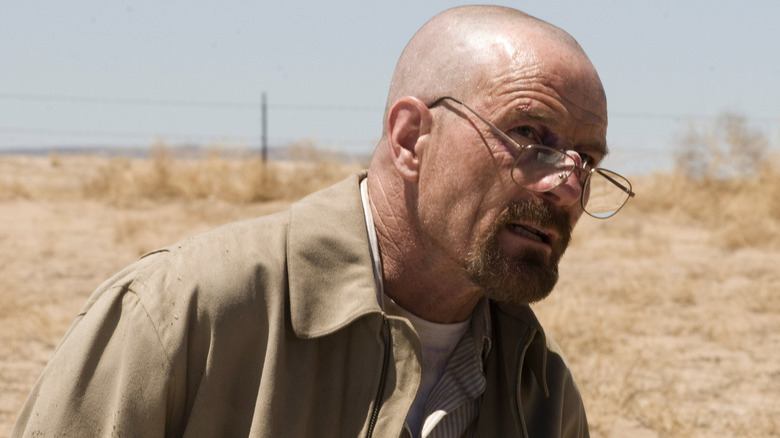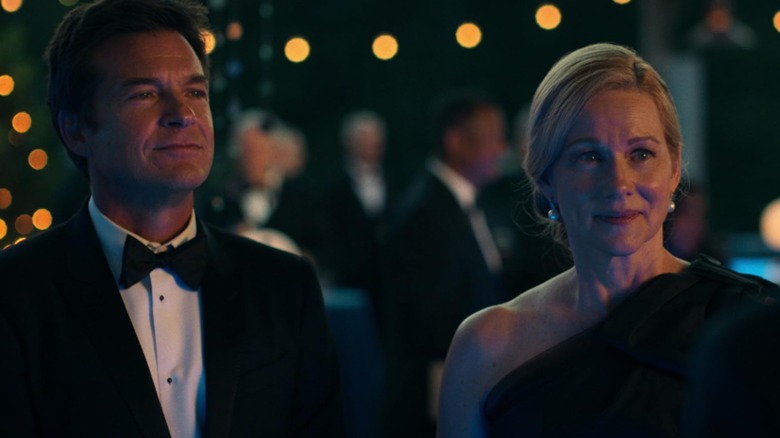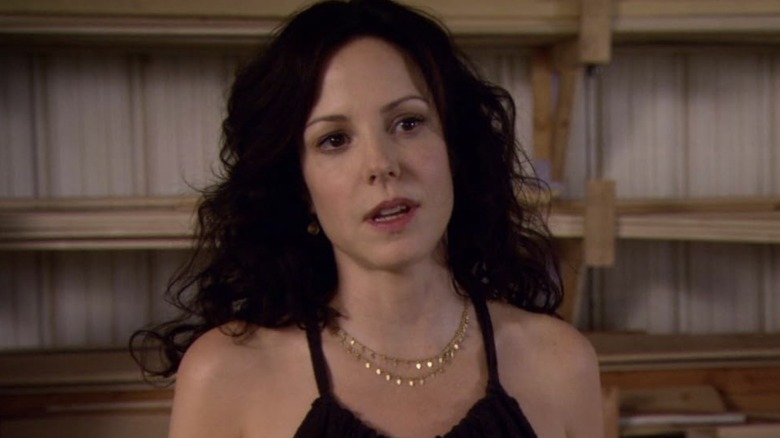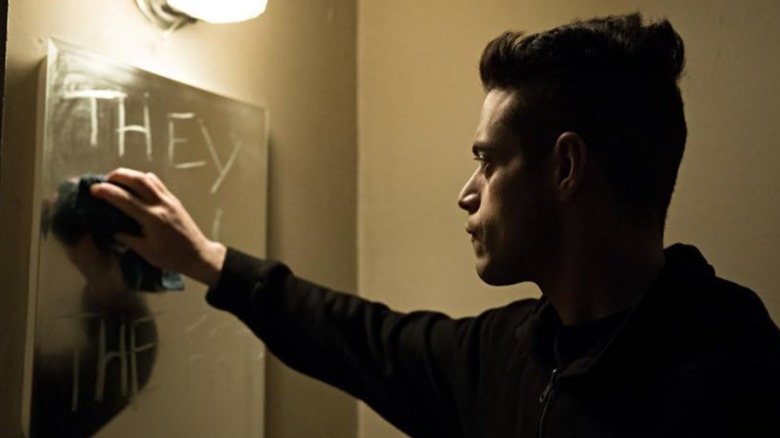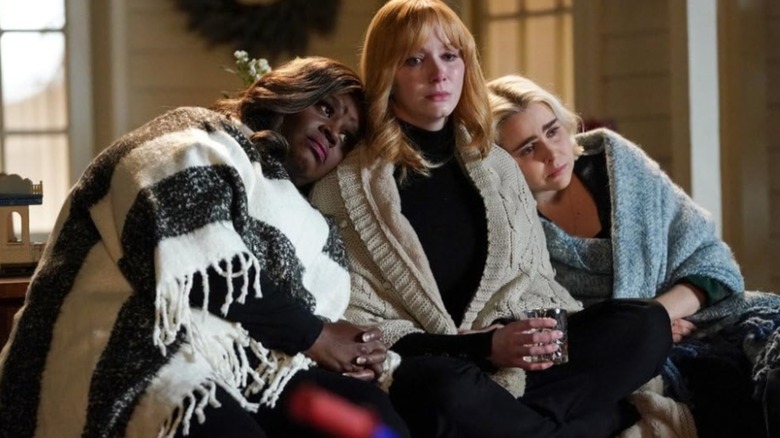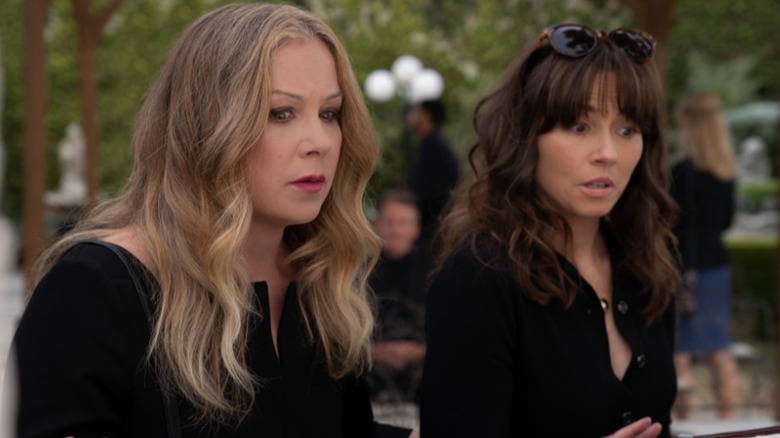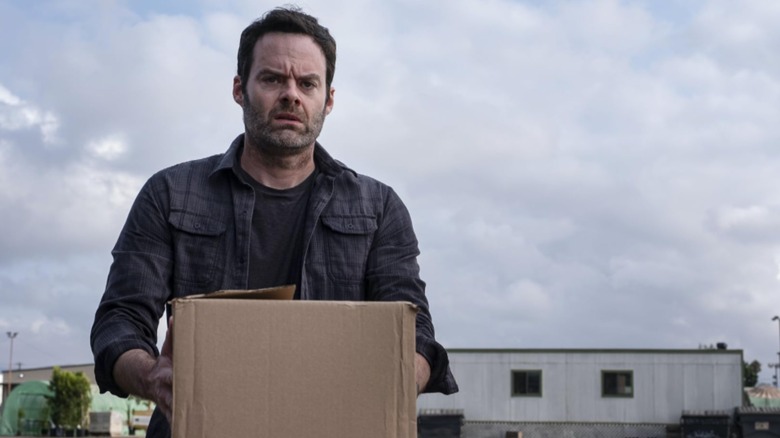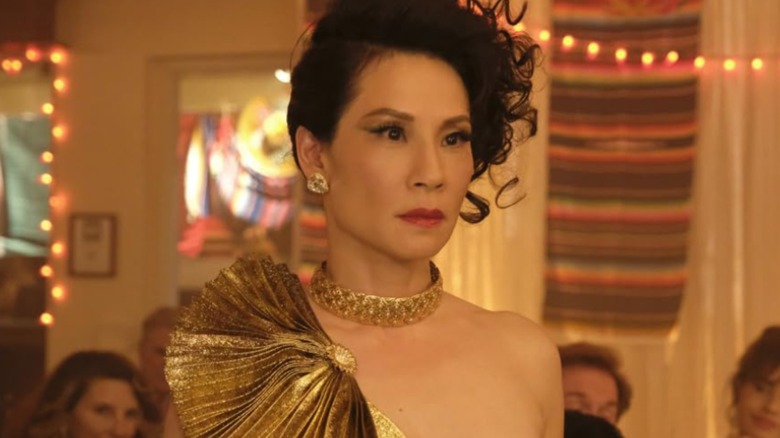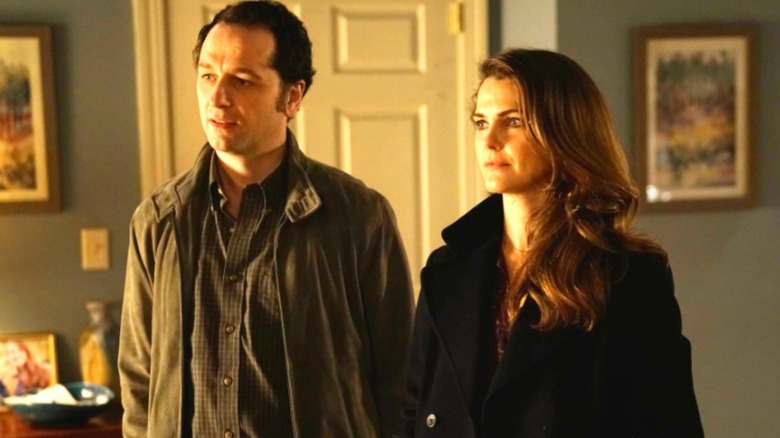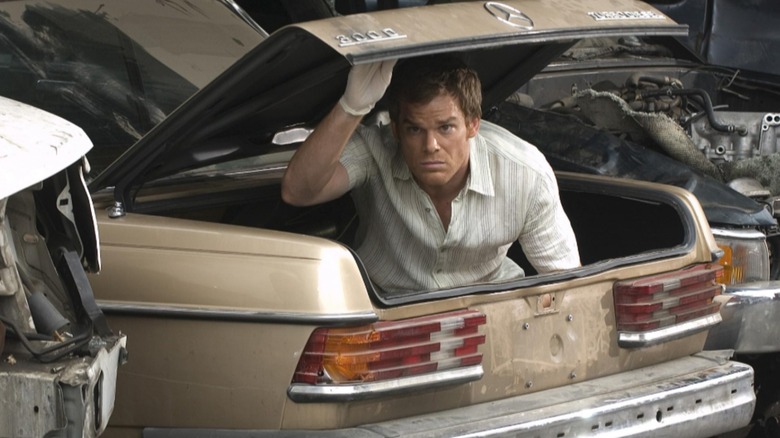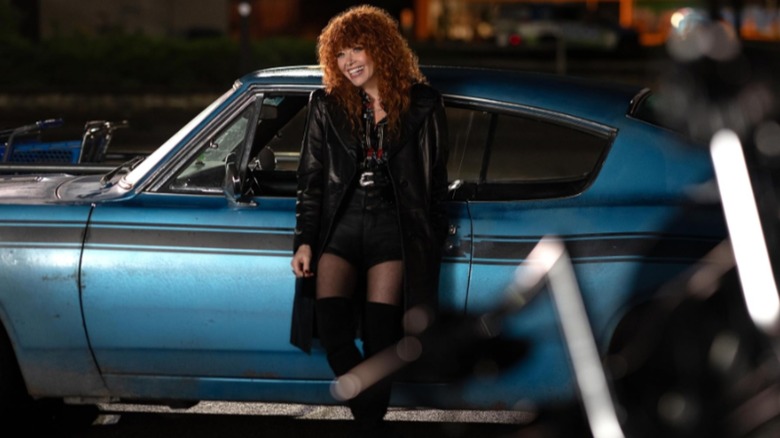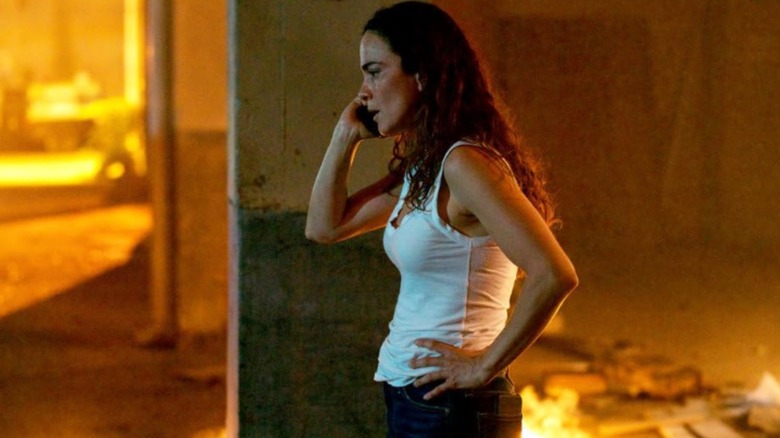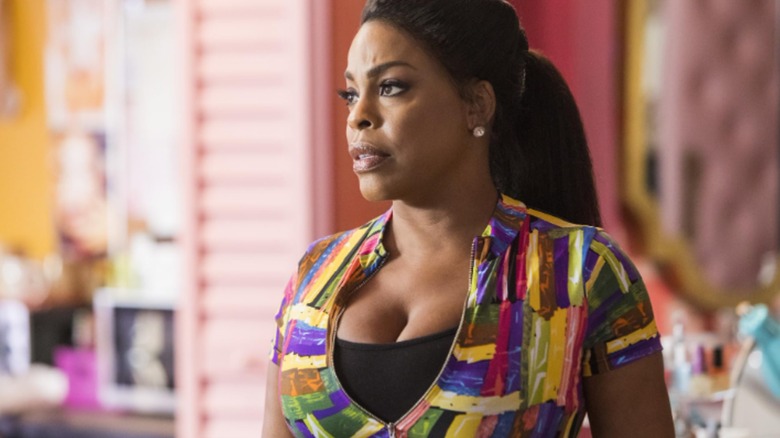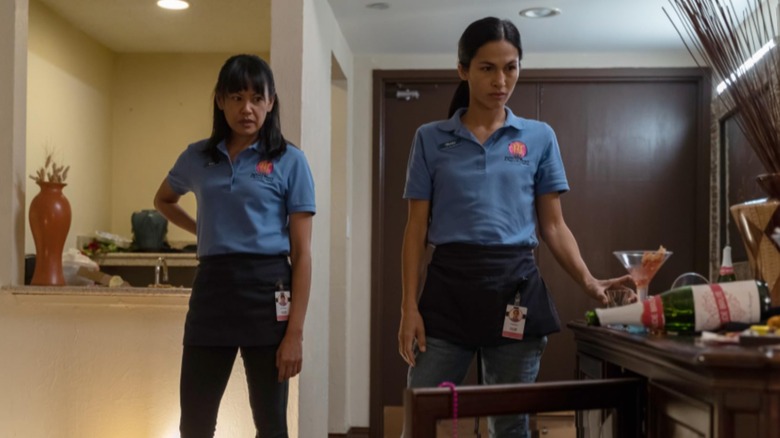From its iconic pilot episode that begins and ends with its protagonist standing in his underwear in the desert, making a despearate video confession before grasping his gun as oncoming sirens approach, “Breaking Bad” was a nonstop wild ride.
Chronicling the transformation of chemistry teacher Walter White (Bryan Cranston) from insecure and, at least outwardly, mild-mannered middle-aged dad to avaricious meth manufacturer Heisenberg, the series offers a study in toxic masculinity. Although Walt’s cancer offers the impetus for his entree into the world of drugs and cartels, it awakens a darkness inside him, a silent seething that’s always been just below the surface — one that drives him to get the recognition and deference he feels he has always deserved.
If the end of Walt’s saga leaves you craving more stories about normies who dip their toe in the world of crime only to fall all the way in, we’ve got you covered. From characters who get tangled up in crime accdentally to those who crave power like Walter White, here are 15 great dramas you won’t want to miss.
Better Call Saul
Both prequel and sequel to “Breaking Bad,” this blackly comedic neo-noir legal drama follows the life and times of Saul Goodman (Bob Odenkirk), aka the artist formerly known as Slippin’ Jimmy McGill. The series begins years prior to Saul’s ill-conceived time working as a fourth-rate strip mall lawyer turned Walter White consigliere, chronicling his complicated relationship with attorney brother Chuck (Michael McKean) and its role in Jimmy’s transformation into Saul and other poor life choices.
His fate is sealed when Chuck pushes him out of the law firm to Albuquerque, where he eventually sets up shop in a nail salon and meets fixer Mike Ehrmantraut (Jonathan Banks). While this is decidedly Saul Goodman’s story, “Better Call Saul” is full of small details that add extra layers and insight for fans of “Breaking Bad.”
Like its parent series, “Better Call Saul” consistently rated highly among both critics and audiences during its run, with many viewers praising Odenkirk for his performance. Although the series never won a Primetime Emmy, it was nominated dozens of times for everything from outstanding writing to outstanding lead actor in a drama series.
Ozark
Anyone old enough to remember teenage Jason Bateman’s emotional performance on “The Hogan Family” episode “Best of Friends, Worst of Times” knows the man has had serious dramatic acting chops since 1990. But for viewers who know him from his role as third-most-likable “Arrested Development” character Michael Bluth or over-the-top films like “Identity Thief,” Bateman’s personification of “Ozark” money launderer Marty Byrde can feel almost as simultaneously jarring and wondrous as watching Hal from “Malcolm in the Middle” rapidly morph into The One Who Knocks. And like Bryan Cranston before him, Bateman is more than up to the challenge.
After years of complicity in his partner’s decision to pad their business by laundering for a cartel, family man Marty is trapped in domestic purgatory with a disconnected wife and family. But all of that changes when the cartel learns they were skimming off the top, forcing the fast-talking finance guy to invent an on-the-spot pitch for Lake of the Ozarks laundering. A fall-from-grace crime story threaded with Southern Gothic color, the Byrde family’s saga is a dark and brooding tale full of charismatic figures brought to life by the likes of Laura Linney, Julia Garner, and perennial villain Jason Butler Harner. You can catch every episode of “Ozark” on Netflix.
Weeds
At a time when cannabis has been decriminalized in many U.S. states, “Weeds” offers a stark reminder of just how steep the penalties were a couple of decades ago (and still are in a handful of states). But as high as those stakes were, they aren’t enough to stop soccer mom Nancy Botwin (Mary-Louise Parker) from getting into the biz after she finds herself recently widowed and light on cash.
The 2005 series follows much the same format as shows like “Ozark” and “Breaking Bad,” with Botwin starting a weed biz only to find herself in a world of crime far beyond her control. What starts out with a few lighthearted handshake deals gradually snowballs into cartel drama.
A dark comedy-drama series satirizing suburban life, “Weeds” has a more lighter and more sardonic tone than other entries in the breaking-bad subgenre and benefits greatly from comedy actors like Kevin Nealon, Elizabeth Perkins, and Justin Kirk. But the series also serves plenty of beautifully acted emotional moments that add gravitas to the seriousness of Botwin’s predicament, while highlighting the social privilege that helps insulate Nancy and simultaneously leaves a trail of destruction in her wake.
Mr. Robot
A foray into crime with a psychological technothriller twist, “Mr. Robot” follows the Alice-in-Wonderland-style journey of cybersecurity expert Elliot Alderson (Rami Malek) as he finds himself recruited into an anti-capitalist scheme by insurrectionary anarcho-hacktivist cybervigilante “Mr. Robot” (Christian Slater). Elliot’s entry into this world is complicated by his laundry list of mental health conditions, which include dissociative identity disorder (DID), clinical depression, social anxiety, delusions, and severe paranoia all compounded by substance abuse.
Like “American Psycho” and “Fight Club,” both of which heavily inspired the series,”Mr. Robot” is told from the point-of-view of a wholly unreliable narrator who lives in a world detached from objective reality. Showrunner Sam Esmail went to great lengths to ensure accuracy in the show’s portrayal of hacker culture by consulting with legally questionable hackers. Rami Malek’s performance as Alderson is quite possibly one of the finest dramatic performances in recent memory, with many viewers praising the nuance and complexity he brought to the role.
Good Girls
“Good Girls” is a four-season NBC crime drama about three struggling suburban Michigan moms who decide to break bad in a one-shot scheme meant to solve their money problems. Fine and Frugal grocery store cashier Annie (Mae Whitman) needs cash for a custody suit, her big sister Beth (Christina Hendricks) is in danger of losing her home, and their friend Ruby (Retta) needs money for a child’s medical condition.
Together, they conceive of what seems like a low-risk plan to rob the grocer. But unsurprisingly, things get heavy when they end up with way more cash than anticipated, not realizing a local crime boss was parking money there. In short time, the three moms are involved in a full-fledged money laundering business.
As the misadventure pulls the trio deeper and deeper into the world of crime, they find themselves face-to-face with the wise words of The Notorious B.I.G. when he philosophized about mo’ money leading to mo’ problems — problems like the FBI, a murder investigation, and an ever-growing list of federal crimes.
Dead to Me
“Dead to Me” is a hidden gem Netflix crime drama about grief, friendship, and the absolute hassle of getting away with murder. Christina Applegate stars as Jan Harding, a woman trapped in her grief after her husband Ted is killed in a hit-and-run. After turning to a support group for help, she makes a connection with the strange and complicated Judy (Linda Cardellini) — unaware that Judy is Ted’s hit-and-run killer. Over the black tragicomedy’s three-season run, the drama continues to escalate as the pair find themselves entangled in a second — and arguably worse — crime.
Hilarious, horrifying, and very well-written, the series features standout performances from James Marsden as semi-identical twins Steve and Ben. The chemistry between Cardinelli and Applegate is pitch-perfect from top to bottom as they paint a complex picture of the depth of connection that characterizes many female friendships. And that makes perfect sense since the “Dead to Me” actors are friends in real life.
Barry
An HBO black comedy crime series about a professional hitman who suddenly gets the acting bug, “Barry” was conceived by ‘Saturday Night Live’ star Bill Hader, who had never planned to get into acting and only took a comedy class to help himself get over a breakup. Perhaps it’s that connection that serves as the secret sauce behind Hader’s portrayal of the titular assassin, an emotionally short-circuited former Marine and Afghanistan veteran who finds a reason to live under the glittering stage lights of the theater.
The fire is lit when Barry finds himself inside an acting class as part of his efforts to finish a contract — that is, killing an actor for sleeping with Chechen crime boss Goran Pazar’s (Glenn Fleshler) wife. Realizing acting is actually a pretty good outlet for all of that big emotional contract killer baggage he’s been carrying around, Barry signs up for the class.
The series has been widely acclaimed by critics and maintained a 96-100% Rotten Tomatoes rating throughout its four-season run. Out of 55 nominations, the series won 10 Primetime Emmys, including a well-deserved outstanding lead actor in a comedy series award for Hader.
Why Women Kill
“Why Women Kill” is one of those innovative shows that deserved many more seasons than the two that it got. A period comedy-drama, the anthology series takes a completely different approach to each of its two seasons while maintaining the same whimsical, colorful tone throughout both.
Anchored around a Pasadena mansion across several decades, the first season looks at three separate stories of murder-adjacent women, shifting back and forth between each tale. The first follows prim 1960s housewife Beth Ann Stanton (Ginnifer Goodwin) as she endures a nonstop barrage of slights and cheating from her husband Rob (Sam Jaeger). The second deals with 1980s socialite Simone (Lucy Liu) and her closeted husband Karl (Jack Davenport), with the third following a modern couple in an open marriage. Dressed up in almost caricaturesque period decor for each decade, the house itself practically serves as a character, or at the very least a neutral third-party observer to the domestic dramas unfolding within.
The second season narrows to just one story in 1949 Los Angeles, with a focus on the social aspirations of garden club dreamer Alma Filcott (Allison Tolman) and her angel-of-death husband Bertram (Nick Frost). Both seasons are equally good, if markedly different in their execution of their exploration of the titular question.
The Americans
Starring Matthew Rhys and Keri Russell, FX’s “The Americans” follows the messy double lives of two Cold War-era sleeper agents paired together by the KGB. The year is 1981, and after years of living in the United States, they have raised two fairly typical all-American kids despite their own allegiance to the Soviet Union and the Communist cause. Both highly trained spies, they continue to work with their handlers when activated, juggling real-life domestic dramas with full-blown spy disguises as they pump targets for info and occasionally get caught up in random acts of late-night violence.
Drawing on themes that parallel Walter White’s Heisenbergian journey, Philip and Elizabeth Jennings’ drama is less about the outward forces they have to contend with than the inner conflict surrounding their own worldviews and identities, now far removed from the world their ideological younger selves were once willing to die for. But underneath the violence and identity crises, there’s also a whiff of whimsy in stories that mirror spy-fi dramas like “Nikita.”
Dexter
If you missed “Dexter” the first time around, now is a great time to get in on the action and binge the entire wild series and its follow-ups, 2021’s “Dexter: New Blood” and 2024’s “Dexter: Original Sin,” ahead of 2025’s newest entry “Dexter: Resurrection.” Adapted from the 2004 book series beginning with “Darkly Dreaming Dexter,” the Showtime crime drama follows Dexter Morgan (Michael C. Hall), a forensic blood spatter analyst with the Miami Metro Police Department. Dexter’s ultra-beige persona hides a pitch black secret: the fact that he moonlights as a highly prolific serial killer.
Told through flashbacks interwoven throughout the story, the series reveals how Dexter’s adoptive cop dad Harry (James Remar) observed his darker tendencies at an early age. Rather than teaching Dexter to suppress his “Dark Passenger,” Harry helped him to channel it into vigilantism against the worst of the worst evildoers that the U.S. criminal justice system fails to convict. Meticulous in everything he does, whether he’s wrapping a kill room in plastic sheeting or inspecting blood spatter patterns, Dexter takes a job with the police where he works alongside his homicide detective adoptive sister Debra (Jennifer Carpenter).
“New Blood” picks up the “Dexter” timeline a decade later as Dexter attempts to suppress his Dark Passenger, while “Original Sin” looks back at Dexter’s early career and training under Harry.
Poker Face
“Poker Face” is a one-hour comedy-drama mystery-of-the-week howdunit series that follows the sardonic Charlie Cale (Natasha Lyonne), a former casino waitress with an almost supernatural knack for identifying liars. The series is kind of a modern take on “Columbo,” which inspired the series along with a handful of other episodic shows like “Magnum, P.I.,” “Quantum Leap,” and “The Rockford Files.”
While the series is both stylistically and tonally different from “Breaking Bad,” “Poker Face” was created and written by Rian Johnson, who won a Director’s Guild of America award for his direction of the “Breaking Bad” episode “Fifty-One.” Like “Breaking Bad,” “Poker Face” finds its lead character tangled up in a world of crime, although in Charlie’s case it’s while on the run from a mob boss.
Natasha Lyonne is absolutely captivating in her portrayal of the fast-talking Charlie, and the cast is positively loaded with an insanely long list of fan favorite guest stars like Rhea Perlman, Steve Buscemi, John Ratzenberger, Melanie Lynskey, and John Cho, just to name a few.
Queen of the South
A USA Network adaptation of Telemundo’s telenovela “La Reina del Sur,” “Queen of the South” follows the transformation of Sinaloa money changer Teresa Mendoza (Alice Braga) from a woman peripherally connected to a cartel through her drug dealer boyfriend Güero (Raymundo Davila) into the wealthy head of an expansive drug empire. After the cartel takes out Güero, she ends up on the run in Texas with her best friend Brenda (Justina Machado), Brenda’s son (Adolfo Alvarez), and Güero’s very detailed notebook — a notebook the cartel wants desperately to get their hands on.
In an equally desperate bid to save her own life from crime family head Epifañio Vargas (Joaquim de Almeida), Teresa ends up working for his estranged wife Doña Camila Vargas (Veronica Falcón), who is making moves against her husband as the head of the Vargas cartel’s main North American branch. As with all the best breaking-bad stories, every move Teresa makes to keep herself safe brings her deeper into the crime world (and higher up the chain).
The series can get a bit sudsy at times — no surprise given its telenovela roots. But the stakes are high, the tension is constant, and Braga makes a wonderfully complex rags-to-riches crime boss.
Claws
Set in Manatee County, Florida, “Claws” is a TNT comedy-drama about a manicure shop crew who end up laundering money for a pill mill. The series revolves around Nail Artisans, a nail salon run by women who each have a rough past and in some cases, a criminal history. Like the fine women of “The Good Girls,” everyone has very specific and pressing financial needs. For owner Desna Simms (Niecy Nash), it’s caring for her autistic brother Dean (Harold Perrineau).
Along with skilled small-time criminal-turned-nail-tech Polly Marks (Carrie Preston) and their colleagues, Desna uses the salon to help her boyfriend Roller (Jack Kesy) launder money from a sketchy pain clinic for Uncle Daddy (Dean Norris) and the Dixie Mafia. After a series of bad turns with Roller, the group ends up getting more involved with the operation.
A wild ride with a decidedly Southern flavor, “Claws” has a solid cast and plenty of unhinged turns along the way. And it’s nice to see Dean Norris take a break from collecting minerals to portray a crime boss.
The Cleaning Lady
A U.S. adaptation of Argentina’s “La Chica Que Limpia,” “The Cleaning Lady” compounds the bad-breaking story with the sociopolitical and economic pressures of the immigrant experience in America. The series follows Cambodian-Filipino immigrant Thony De La Rosa (Elodie Yung), who lives and works in Las Vegas despite her expired visa because it’s the only place that offers a medical treatment her son desperately needs. A surgeon back home, Thony works as a cleaning lady while managing her son’s serious medical condition in hopes of getting him that much-needed bone marrow treatment.
Thony’s fortunes change one night when she ends up entangled with an Armenian crime family after witnessing a murder. But instead of ending up in the desert, gangster Arman Morales (Adan Canto) offers her a job as their cleaner. And even if her undocumented status means she can’t work at a local hospital, it turns out the organized crime world is more than happy to let her practice medicine as well.
A Model Family
The South Korean series “A Model Family” has drawn many comparisons to “Breaking Bad” and “Ozark” for its similar themes. The Korean-language Netflix series follows Dong-ha (Jung Woo), a professor and breadwinner of a struggling family, who’s on the brink of losing everything to bankruptcy and divorce after all his money vanishes in a failed bribery scheme to become tenured. And if that wasn’t bad enough, his kid needs heart surgery.
Just as everything is going in the toilet, the family’s luck starts to change when Dong-ha stumbles across a vehicle with enough money packed inside to solve all of their problems and ends up landing a gig as a drug courier for a crime family.
This series has all the grit and violence you’d expect from a series like “Breaking Bad,” but with a family that actually like each other. Like Walter White, Dong-ha is a deeply flawed and put-upon character. But instead of embracing his inner Heisenberg, he simply finds himself in too deep in a world he isn’t cut out for.

